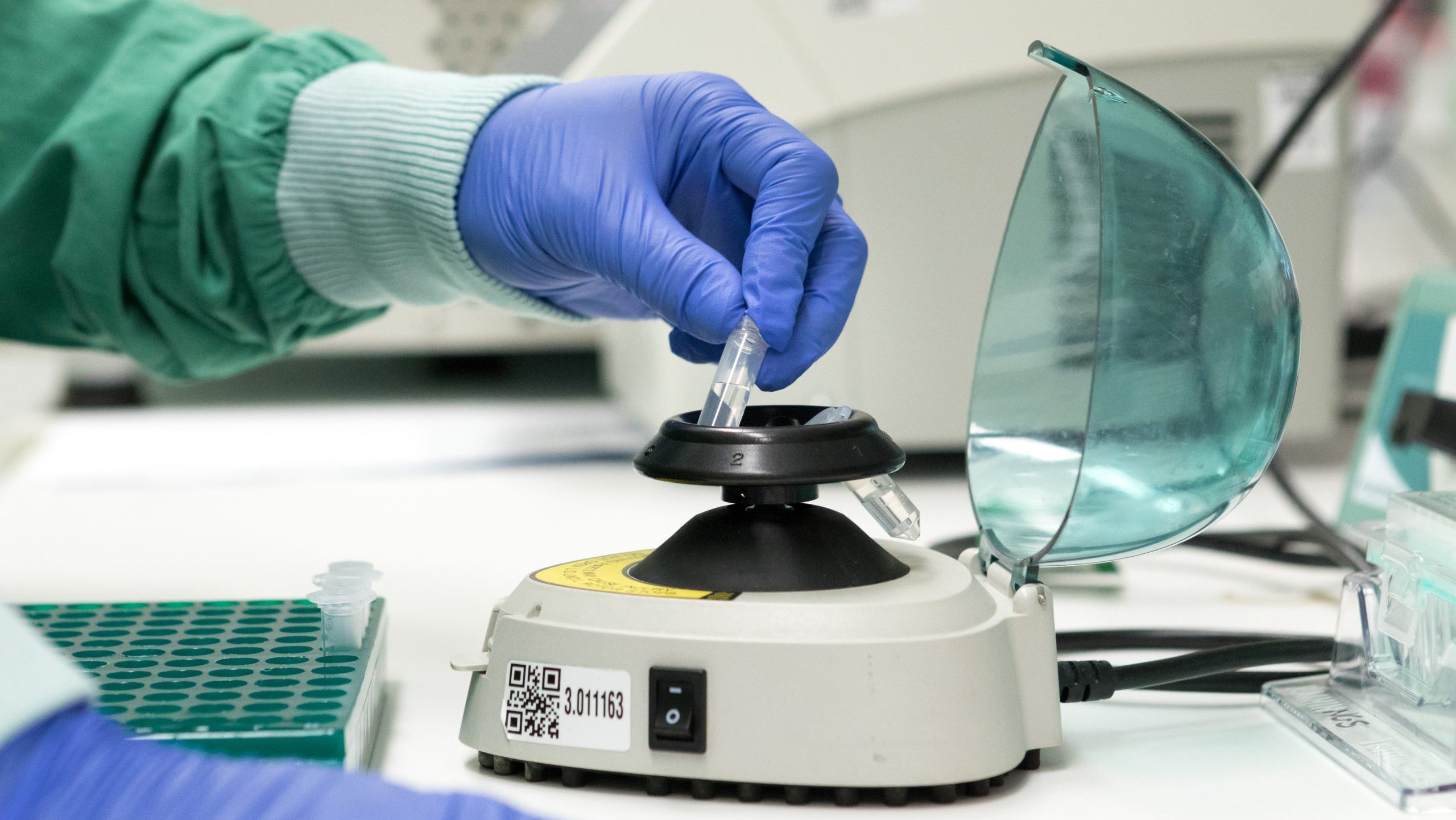Optimising Immunotherapy for Aggressive Lymphoma

Earlier this year, the Snowdome Fellowship for Optimising Immunotherapy for Aggressive Lymphoma commenced. This ground-breaking research, led by Professor Michael Dickinson and fellow, Dr Adrian Minson supported a fellowship to optimise immunotherapy for aggressive lymphoma, particularly diffuse large B cell lymphoma and mantle cell lymphoma. These specific lymphomas are types of non-Hodgkin lymphoma (NHL) and are very difficult to cure after relapse. Both are the cause of significant morbidity and mortality in Australia and around the world.
Diffuse large B cell lymphoma (DLBCL) is the most common non-Hodgkin lymphoma (NHL) globally, and Australia’s sixth most common cancer. Approximately two-thirds of patients are cured by frontline chemotherapy, the current standard-of-care treatment. This leaves approximately one third of patients who will need a second or subsequent lines of therapy. More than half of the patients who relapse will die from their lymphoma.
Second and third-line therapy for DLBCL includes autologous stem cell transplantation (stem cells harvested from the patient) or Chimeric Antigen Receptor T-cells (CAR T). These therapies are expensive and sometimes poorly tolerated. Avoiding relapse after frontline therapy is an important goal, as is inducing a new complete remission before planned stem cell transplantation.
Mantle cell lymphoma (MCL) accounts for roughly 15 per cent of NHL. Generally, it is considered an incurable disease, as most patients relapse after front-line chemotherapy. Apart from allogeneic transplantation (using a donor’s stem cells instead of the patient’s own cells), which may only cure a third of patients and is not suitable for most, it is not curable when relapsed. After the first relapse, the prognosis of mantle cell lymphoma is very poor. ¹
Appointed to the role of fellow to undertake this important study, Dr Minson is a Clinical and Laboratory Haematologist and a PhD candidate under the supervision of Prof. Dickinson at the Peter MacCallum Cancer Centre in Parkville, Melbourne. Dr Minson’s focus was to support the ongoing running and analysis of four cutting-edge Australia-wide clinical trials, all of which would test novel immunotherapy combinations. The four trials, TARMAC, GolDiLOX, COALITION and Epcor-Sandwich, would provide 180 Australian blood cancer patients, diagnosed with high-risk aggressive lymphoma, an opportunity to receive world-first novel combination treatments.
The trials run by Prof. Dickinson and Dr Minson have so far shown that these combination therapies are highly effective for aggressive lymphoma patients with a traditionally poor prognosis. The trials are generating important evidence that will be used to pursue the ultimate goal of having these combination therapies approved by the TGA and listed on the PBS. It is envisaged that the resulting new class of therapy would be readily accessible in most hospitals, rapidly initiated and have significant cost benefits.
Snowdome is delighted to be supporting this world-first research in alignment with our mission to accelerate next-generation treatments. Importantly, after initial funding from Snowdome, Prof. Dickinson and Dr Minson have been able to leverage significant additional funds.
¹Lew TE, Minson A, Dickinson M, Handunnetti SM, Blombery P, Khot A, Anderson MA, Ritchie D, Tam CS, Seymour JF. Treatment approaches for patients with TP53-mutated mantle cell lymphoma. Lancet Haematol 2023;10(2). https://pubmed.ncbi.nlm.nih.gov/36725119/.
